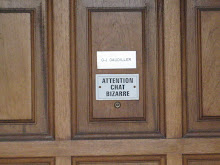"Take all these fellows we know, the kind right here in the club now, that seem to be perfectly content with their home-life and their business, and that boost Zenith and the Chamber of Commerce and holler for a million population. I bet if you could cut into their heads you'd find that one-third of 'em are sure-enough satisfied with their wives and kids and friends and their offices; and one-third feel kind of restless but won't admit it; and one-third are miserable and know it. They hate the whole peppy, boosting, go-ahead game, and they're bored by their wives and think their families are fools - at least when they come to forty or forty-five they're bored - and they hate business, and they'd go - Why do you suppose there's so many 'mysterious' suicides? Why do you suppose so many Substantial Citizens jumped right into the war? Think it was all patriotism?"
...
The advertisements were truly philantropic. One of them bore the rousing headline: "Money! Money!! Money!!!" The second announced that "Mr. P. R., formerly making only eighteen a week in a barber shop, writes to us that since taking our course he is now pulling down $5,000 as an Osteo-vitalic Physician;" and the third that "Miss J. L., recently a wrapper in a store, is now getting Ten Real Dollars a day teaching our Hindu System of Vibratory Breathing and Mental Control."
...
She made him what is known as a Good Wife. She was loyal, industrious, and at rare times merry. She passed from a feeble disgust at their closer relations into what promised to be ardent affection, but it drooped into bored routine. Yet she existed only for him and for the children, and she was as sorry, as worried as himself, when he gave up the law and trudged on in a rut of listing real estate.
...
"That's a fact. They're getting so they don't have a single bit of respect for you. The old-fashioned coon was a fine old cuss - he knew his place - but these young dinges don't want to be porters or cotton-pickers. Oh, no! They got to be lawyers and professors and Lord knows what all! I tell you, it's becoming a pretty serious problem. We ought to get together and show the black man, yes, and the yellow man, his place. Now, I haven't got one particle of race-prejudice. I'm the first to be glad when a nigger succeeds - so long as he stays where he belongs and doesn't try to usurp the rightful authority and business ability of the white man."
"That's the i.! And another thing we got to do," said the man with the velour hat (whose name was Koplinsky), "is to keep these damn foreigners out of the country. Thank the Lord, we're putting a limit on immigration. These Dagoes and Hunkies have got to learn that this is a white man's country, and they ain't wanted here."
...
He was thinking. It was coming to him that perhaps all life as he knew it and vigorously practised it was futile; that heaven as portrayed by the Reverend Dr. John Jennison Drew was neither probable nor very interesting; that he hadn't much pleasure out of making money; that it was of doubtful worth to rear children merely that they might rear children whou would rear children. What was it all about? What did he want?
...
"There's a lot of these fellows that think if workmen go on strike they're a regular bunch of fiends. Now, of course, it's a fight between sound business and the destructive element, and we got to lick the stuffin's out of 'em when they challenge us, but doggoned if I see why we can't fight like gentlemen and not go calling 'em dirty dogs and saying they ought to be shot down."
...
He was conscious that his line of progress seemed confused. He wondered what he would do with his future. He was still young; was he through wiwth all adventuring? He felt that he had been trapped into the very net from which he had with such fury escaped and, supremest jest of all, been made to rejoice in the trapping.
"They've licked me; licked me to a finish!" he whimpered.
Babbitt, by Sinclair Lewis (1924). As put forward by Philip Roth in "The Human Stain", since the 90s western society has been behaving as if nobody had read Babbitt, and since the 2000s as if it had never been written.
quarta-feira, 22 de maio de 2019
Assinar:
Postagens (Atom)

